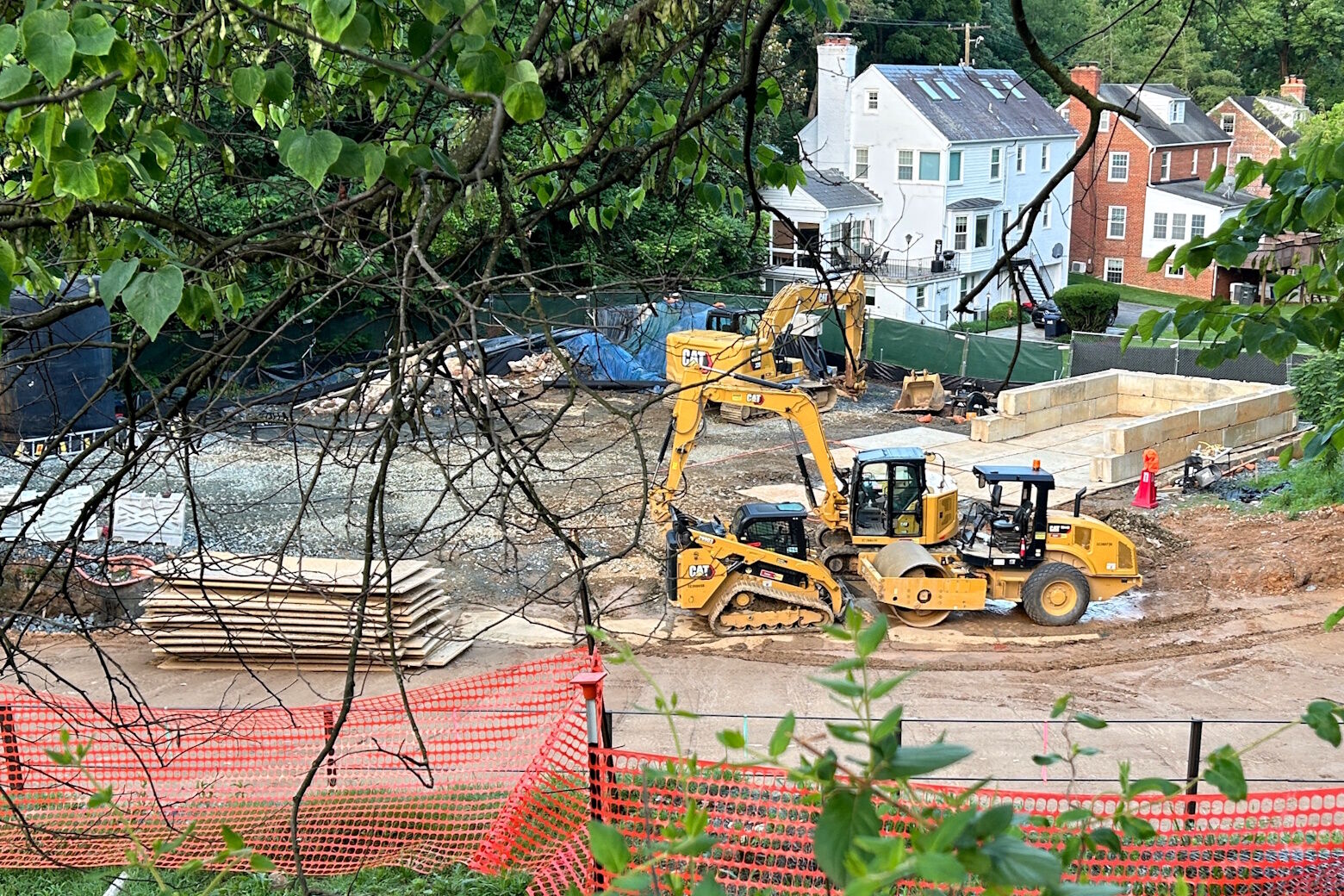Suspected World War I-era chemical munitions found on American University campus – WTOP News

The U.S. Army Corps of Engineers tells WTOP that 19 full or partial World War I-era munitions were found on the campus of American University, which once served as a chemical weapons testing and disposal site.
WTOP’s Neal Augenstein joins Mark Lewis to discuss World War I-era munitions found at American University.
This page contains a video which is being blocked by your ad blocker.
In order to view the video you must disable your ad blocker.
Suspected World War I-era chemical munitions found on American U. campus
The U.S. Army Corps of Engineers confirmed with WTOP that 19 full or partial World War I-era munitions were found Tuesday on the campus of American University in Northwest D.C. — which served as a chemical weapons testing and disposal site during the first World War.
All of the recovered munitions were 75 mm projectiles. Two projectiles contained an undetermined fluid, which prompted the USACE to summon the Army’s Fort Belvoir’s 55th Ordnance Company and D.C.’s Fire and Emergency Services to the scene.
The two suspicious munitions were safely assessed, packaged and transported to the nearest military installation — Aberdeen Proving Grounds in Harford County, Maryland — for additional assessment.
“The safety of our employees, as well as those on the AU campus and surrounding communities, is of the utmost importance to the U.S. Army,” said Kurt Rauschenberg, chief of public affairs for the Army Corps of Engineers.
At Aberdeen Proving grounds, X-ray technology and a Portable Isotopic Neutron Spectroscopy System — or PINS — will enable investigators to identify the suspicious liquid non-intrusively, without having to open the projectile.
The devices were found in a steep hillside on Rockwood Parkway NW, next to the former AU Public Safety Building, which was demolished in August 2017.
The area where the projectiles were found was in a fenced-off Army Corps worksite, near Fletcher Gate, on the southern edge of the campus. Remediation crews have been excavating potentially-contaminated soil under and near the former public safety building,
The painstaking, safety-based work is a continuation of the decadeslong cleanup in the Spring Valley neighborhood, which focused on the home at 4825 Glenbrook Road NW, adjacent to the AU campus. The property where the home sat was once dubbed the “mother of all toxic dumps.”
The Army Corps knocked the home down in 2012 and began the time-consuming remediation to remove any dangerous materials and soil before returning the property to the university.
In November of 2021, the Army Corps said the cleanup at the Glenbrook Road site was completed, after it remediated, removed and recovered 556 munition items (23 of them filled with chemical agents), more than a ton of laboratory debris, 53 intact and sealed glass containers of chemical agents and 7,500 tons of contaminated soil.
Since then, remediation work has shifted to the area near the former public safety building.
When the items were discovered Tuesday, AU’s vice president and CFO Dr. Bronte Burleigh-Jones notified the university community, saying there was no known threat to campus safety and that campus activities would continue.
In a statement to WTOP, D.C. Del. Eleanor Holmes Norton said, “I’m deeply concerned about the suspected munitions found on American University’s campus and thank the U.S. Army Corps of Engineers for coordinating an immediate response for the safety of the public.”
“I have sounded the alarm when similar munitions have been found in D.C. since 1993, and I’ll continue to work with the relevant entities until I’m satisfied the threat has been contained,” she added.
In 2022, WTOP reported that a World War I-era unexploded shell discovered by the National Park Service during construction of a trail through Northeast D.C.’s Fort Totten may have been transported from the Spring Valley cleanup site, adjacent to AU.
Get breaking news and daily headlines delivered to your email inbox by signing up here.
© 2024 WTOP. All Rights Reserved. This website is not intended for users located within the European Economic Area.
Related
What’s at stake for American culture with Trump’s Kennedy Center…
In her two decades as a human rights lawyer, working on issues in more than 25 countries, Hadar Harris says she is alarmed by what she's witnessing on U.S. soil
Denmark lost 52 soldiers fighting alongside the US. Now it…
Nick BeakeEurope correspondentBBCAll his adult life, Colonel Soren Knudsen stepped forward when his country called. And when its allies did.He fought alongside
As Trump upends foreign policy, Berkeley scholar sees irreparable damage…
Last week’s Oval Office blowup with Ukrainian President Volodymyr Zelensky exemplified what many foreign policy experts have long feared: that th
Trump creates a task force for the North American 2026…
President Donald Trump creates a task force to prepare for the 2026 W











